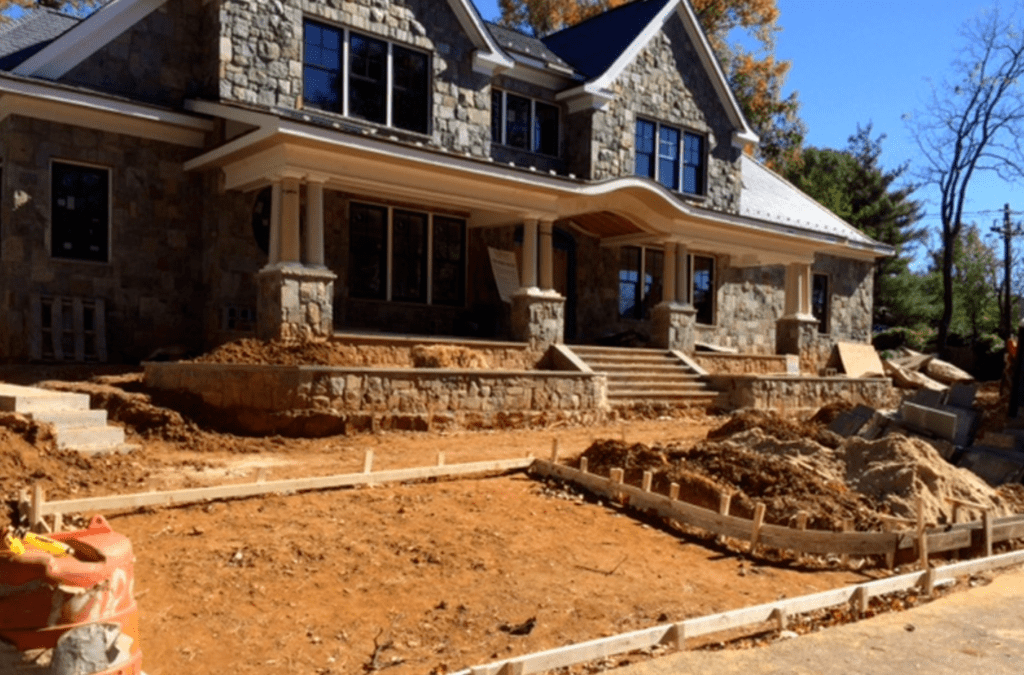New Custom Home Financing Checklist
“What you need to know”
(updated for 2023)

When it comes to building a new custom home, one of the first steps is often securing a construction perm loan and a new custom home financing checklist will save you time.
These loans allow you to finance both the construction of your new home as well as the permanent mortgage once the home is completed.
If you’re in the process of applying for a construction perm loan, it’s important to be well-prepared and have all of the necessary documents and information on hand.
In this article, we’ll provide a checklist of everything you’ll need to successfully apply for a construction perm loan.
Here’s the kind of information you should have at hand when you apply for your construction loan.
This is a general list:
Salaried Borrowers
* Pay stubs for the most recent 30-day period (including a year-to-date summary) for each of the borrowers on the loan
* Most recent W-2 statements for all borrowers
* Relocation letter on company letterhead, if applicable
Self-Employed Borrowers
* Complete signed tax returns for the last two years, including schedules and statements. If incorporated, personal and corporate returns should be provided
* A copy of an extension to file, if applicable
* Year-to-date profit and loss statement, if beyond June 30th
Deposit Verification
* All pages of checking and savings account statements from the most recent 30-day period
* All pages of asset account statements, including money market funds, mutual funds, stock accounts, IRAs, CDs, etc., from the most recent 30-day period.
Please note that Internet screen prints are generally not acceptable
* Gift letter, if applicable
* Evidence of the sale of your previous home, if applicable
* Verification of large deposits
Miscellaneous Borrower Documents
* Any divorce decrees, child support agreements, or separate maintenance agreements if alimony or child support is either paid by any borrower on the loan or received by any borrower on the loan and is used as income
* Written explanations for any credit issues that appear on your credit report
* Copies of any leases and two years of federal tax returns on any rental properties you own
Construction and Builder Documents
* Construction plans and specifications
* Fully executed Purchase/Construction contract accounting for all work. This may involve separate bids and/or contracts if work is not included in the contract
* Alta (HUD1) Settlement Statement from the purchase of the land, if the purchase occurred within the past 12 months.
* Builders name, phone number and address
* Name and phone number of your preferred settlement agent (i.e., title company, attorney, escrow agent, etc.)
* Builders Risk insurance (home buyer is repsonsible
* Certification for any private well or septic system
* Foundation survey (In most states, this can be handled by your title company). Its cost is usually not covered in your closing costs.
* Verification of deposits to your builder and/or land seller, such as cancelled checks or a copy of a certified check
Ordering the Appraisal
The Lender will order a full appraisal of the proposed property based on the final plans and building specifications.
All conditions (such as debt reduction or additional documentation) for your permanent loan must be satisfied prior to the close of construction.
Usually your permanent loan commitment is valid for 12 months from the date your construction loan closed.
We have a lender who, depending on the transaction, will go to a 24 month commitment and lock the rate for 30 years.
If this loan commitment expires before your permanent loan closes, you will be required to update your application, which will require new documentation.
Any change to your credit profile may negatively impact your ability to get a permanent loan.